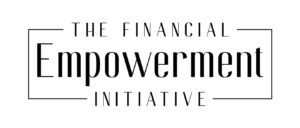
When I was a young girl, my grandfather bequeathed a huge, ornate, old piano to my mother. There was no room in our living room, and so it was hauled downstairs where we as children could pound away and not drive our mother mad. When we got old enough to read music, mother enrolled myself and my two sisters in piano lessons. My brothers were musical, but never had the opportunity to take lessons so they “played by ear.” We eventually bought a “modern” piano, which now sits in my living room, since my parents have passed on. I loved to play and still do, to this day, but my sisters endured the lessons and never took it up after they left home.
My father would bring home sheets of music he loved and ask me to learn them so I could play for him. His favorite piece was “Exodus” and when I play it, it reminds me of my dad. When visitors would come to the house, he would also ask me to sit and play for them. I remember music recitals, rudiments, scales and Royal Conservatory sight tests in the church basement.
My siblings and I were also encouraged to play a musical instrument. Music is part of my life. I listen to music and sing in the car, the house or church. Some of my favorite tunes are bible verses that have been put to music. I have put away my clarinet, but I now entertain the neighbors as I play the piano with my windows open so they can enjoy the melodies. I am thankful that my parents encouraged me to practice. It gives me such joy to make music for others. And now the research is proving that music is healing and Alzheimer and dementia patients actually remember songs from their former years. It has the power to change moods.
A compelling body of research demonstrates that music continues to offer powerful potential for enhancing health and well-being in old age. Active music making has been found to provide a source of enhanced social cohesion, enjoyment, personal development and empowerment and to contribute to recovery from depression and maintenance of personal well-being throughout these latter stages of adult life.
https://www.researchgate.net/publication/258183735_The_power_of_music_in_the_lives_of_older_adults
Almost ten years ago, Elena Mannes wrote a book entitled, The Power of Music. In her research, she found that music literally penetrates the body and stimulates parts of the brain more than any other human function. Because it affects different groups of people in different ways, music could be used effectively a variety of settings, especially playing a vital role in health care. Music has the power to literally change the way the brain functions. She discovered that verbal functions could actually be stimulated by music.
Music lifts one’s soul. It elevates the mood and enhances the mind. It can be soothing, upbeat. It can be sung, played, hummed, drummed with a beat and danced to. It is the sound of angels singing, choruses of choirs in angelic voices raised in the heavens and elevates us to a new space in time. When we close our eyes, we can feel it vibrate through our veins and stir our very souls. Music causes us to feel all sorts of emotions. It has a language of its own.
David, played the harp as a shepherd to the sheep in the fields of Bethlehem and to King Saul as a court musician in the royal courts. He wrote down the psalms and nearly half of the Psalms we read and sing today are from him. He also used music to sooth King Saul both physically and spiritually. (1 Samuel 16: 14-23) We do that ourselves when we dance to a well-loved song or sing along to a familiar tune to lift us out of a dark mood?
We hear music in the elevators, in the grocery store aisles and even when we are put “on hold” when waiting on the phone. There is another kind of music that we could listen to as well, but we seldom notice it. The chirping of sparrows in my garden in the early morning as they sweetly sing in the morning sun; the soft drumming of rain among the trees and the forest path as I go for a morning walk or the wind rustling the leaves draws my attention to the music of nature.
And so, whether you are walking to the beat of a tune on your i-pod or tapping your foot to a song on the radio; whether you sing a solo in the shower or play an instrument in the orchestra; whether you dance in the rain or cry when that wedding song comes on, keep the music alive! Feel it beat in your bones and heal you. It is medicine for the soul.
Lorrie Morales is a published author of the best selling book We Can Do This! Adult Children & Aging Parents: Planning for Success. She writes a weekly column for LCCMedia Foundation.
